Seagate is one of the oldest producers of HDD storage solutions in the industry, having started out in 1978 before becoming publicly traded in 1981. Seagate has certainly made its contributions to the consolidations taking place in the storage industry in the last few years, acquiring the likes of Maxtor (2005), LaCie (08/2012), LSI from Avago (05/2014), and backup and recovery provider Evault (07/2014).
It was not too many years ago that the idea of a 1TB drive was almost mind-boggling. However, with the continued explosion of digital data, including large-file-size games that support hi-resolution and/or 3D graphics, HD movies, HD music (and more), the need to store that data now makes a 1TB HDD not seem all that large. Also, enterprise storage systems are experiencing similar (if not even greater) growth, so more storage capacity with fewer drives is always going to be an attractive option. Hence, the market is definitely there for ever-larger capacity HDDs. Seagate’s first 3TB drives were five-platter drives of approximately 600GB capacity per platter. Seagate’s latest 3TB drives only require three platters of 1TB capacity each. This results in prolonged servo motor life, as well as producing less heat. Seagate was the first in the industry to develop the 1TB-per-disk technology. Today we have on hand Seagate’s ST3000DM001 3TB HDD for review.
ST3000DM001 SPECIFICATIONS, PRICING & AVAILABILITY
The ST3000DM001 is a 3.5” form factor, 7200rpm SATA 6Gb/s HDD that features a 64MB cache. It utilizes the three platters along with six heads for read/write purposes. In this report, we will verify Seagate’s claims on the ST3000DM001 product page of average read/write data transfer rates of 156MB/s, and maximum sustained read/write data transfer rates of 210MB/s. Power consumption is stated as 2.5w startup, 8.0w in typical operating mode, and 5.4w at idle. Standby or sleep modes reduce power draw to 0.75w. The ST3000DM001 is available either with or without encryption capabilities. Also included with the purchase of any ST3000DM001 is a free download of Seagate’s DiscWizard software, which enables the use of larger capacity drives (greater than 2TB) on legacy PC BIOS versions, as well as enabling hot-swap capabilities. Seagate is backing the STM3000DM001 with a 2-year warranty. It is currently (as of date of publication) selling on Amazon for $89.30US, which equates to less than $0.0297/GB.
A CLOSER LOOK INSIDE
Here we see the front of the ST3000DM001, with Seagate’s label specifying the capacity in GB, as well as the model and serial number, the spindle speed and the drive’s original firmware version. We also see icons indicating compliance with various standards, as well as showing that this drive is a product of China.
On the rear, we can see the SATA power and data connections, as well as the underside of the PCB.
The next image is a close-up of the SATA power and data connections.
The SMOOTH DILLON chip pictured below controls the spindle motor. Also note the thermal heat dissipation material on top of the two chips to the right.
Seagate’s recent acquisition of LSI allows them to be “vertically integrated” as far as the storage controller goes. Pictured below is the LSI B41281V0 mass storage controller utilized for the ST3000DM001. When the drive was disassembled, there was a thermal heat dissipation pad on top of the controller (please see the DRAM chip image). After removing the thermal pad, it became a bit tricky to read the actual part number on the LSI controller, requiring some creative lighting techniques to make the number visible.
Here we see the Winbond DRAM chip. Deciphering the part number on Winbond’s website reveals this to be a 512MB chip of DDR2-800 SDRAM that is capable of either 5-5-5 or 6-6-6 timings.
Review Overview
Build Quality
Performance
Availability
Warranty
Excellent value for a premium HDD
An excellent choice for fast, large capacity storage! $0.34/GB for 3TB of premium HDD storage!
 Technology X Tomorrow's Technology Today!
Technology X Tomorrow's Technology Today!

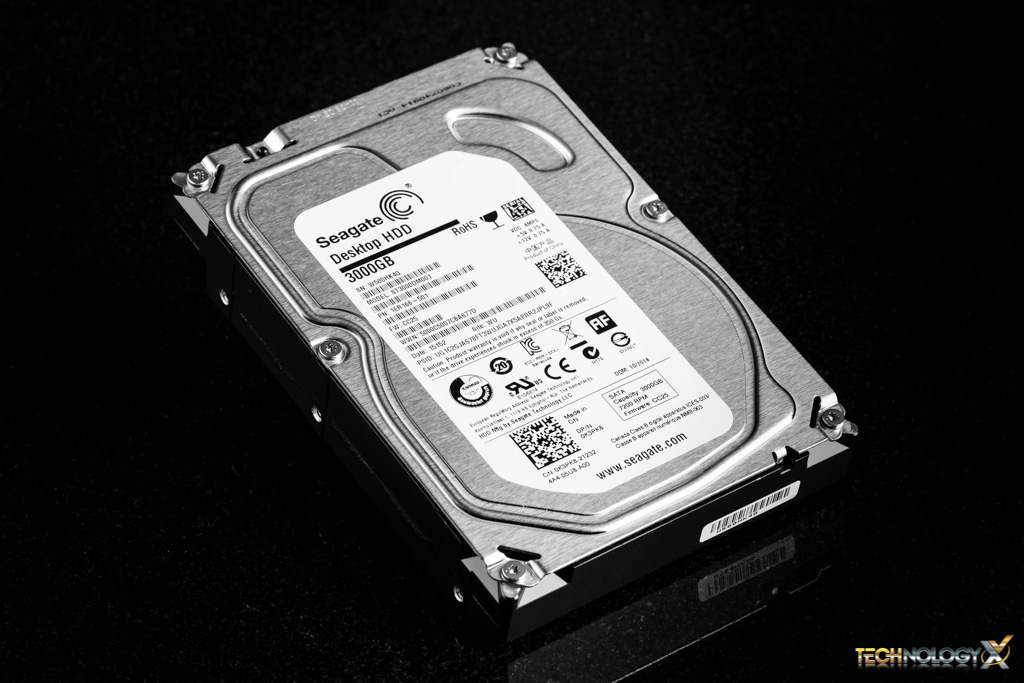
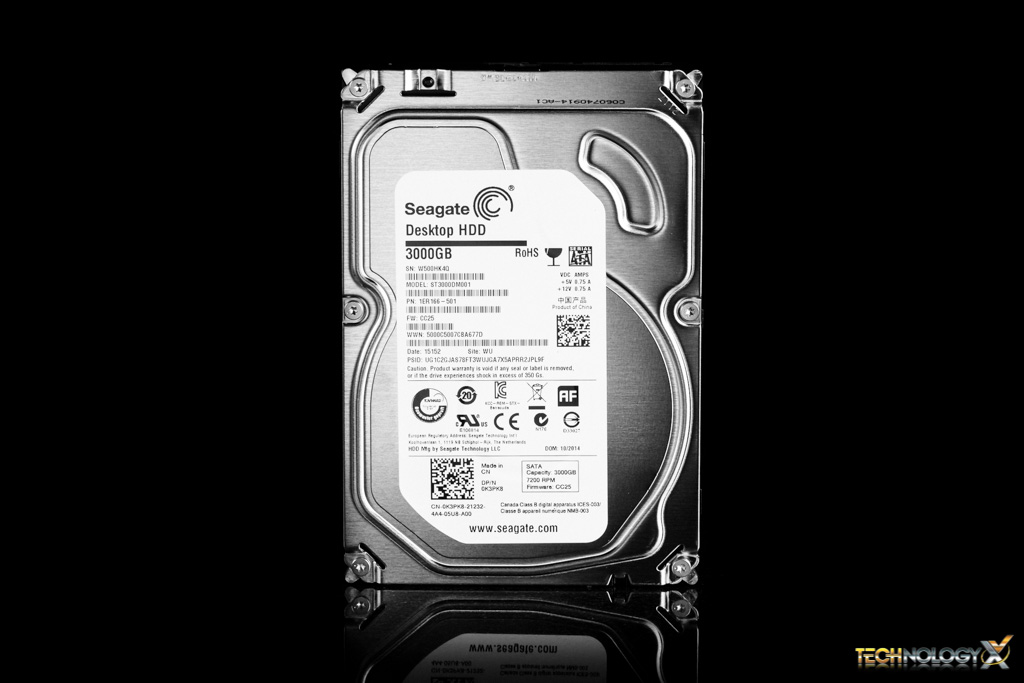
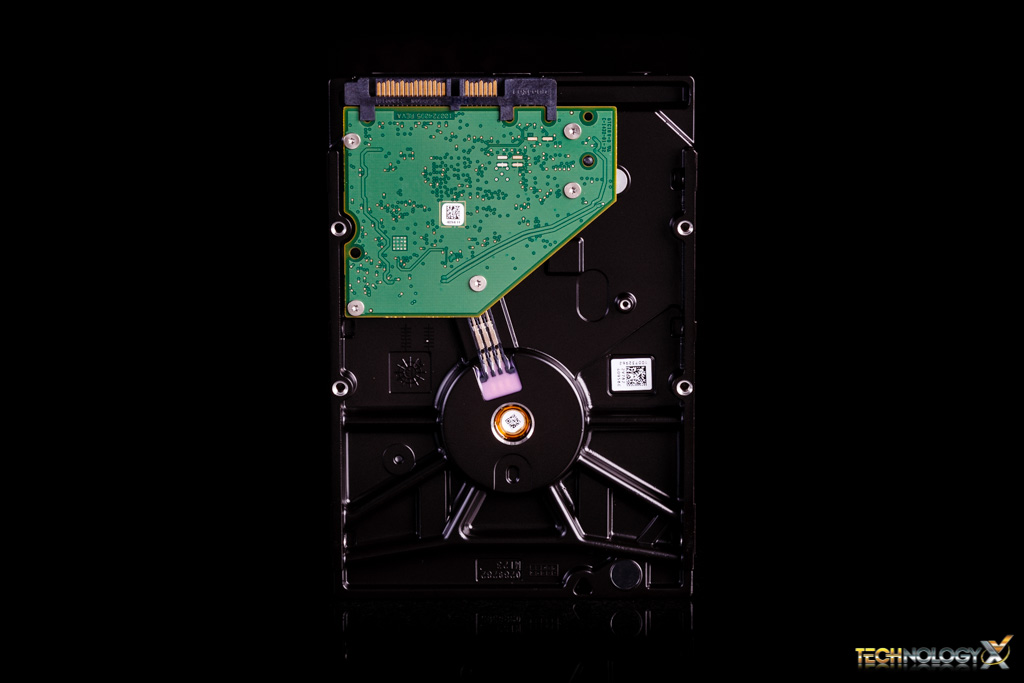
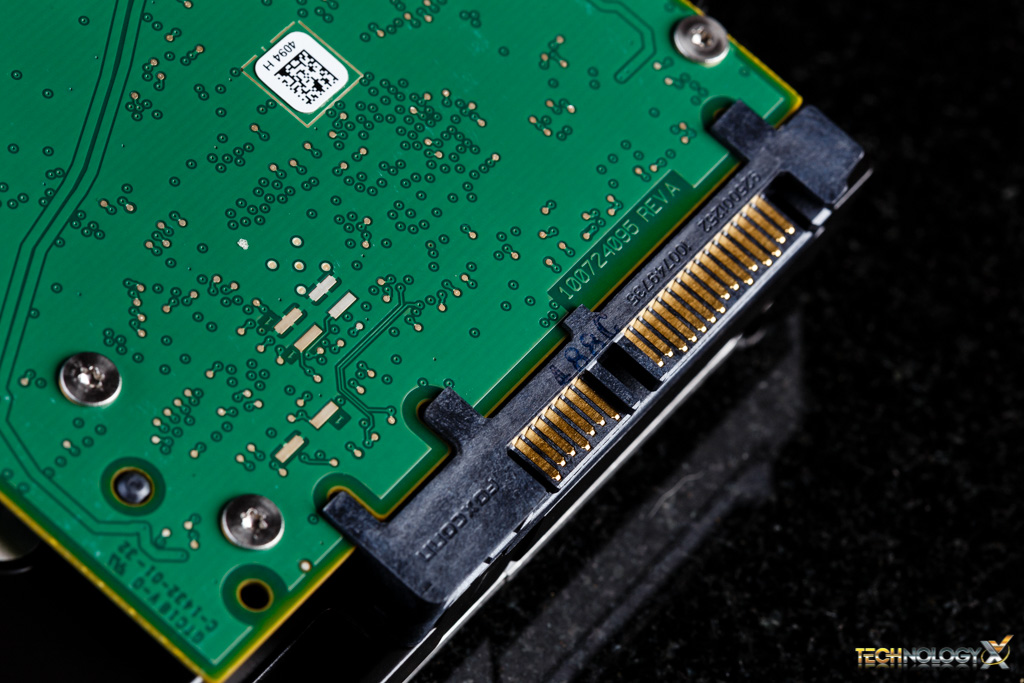
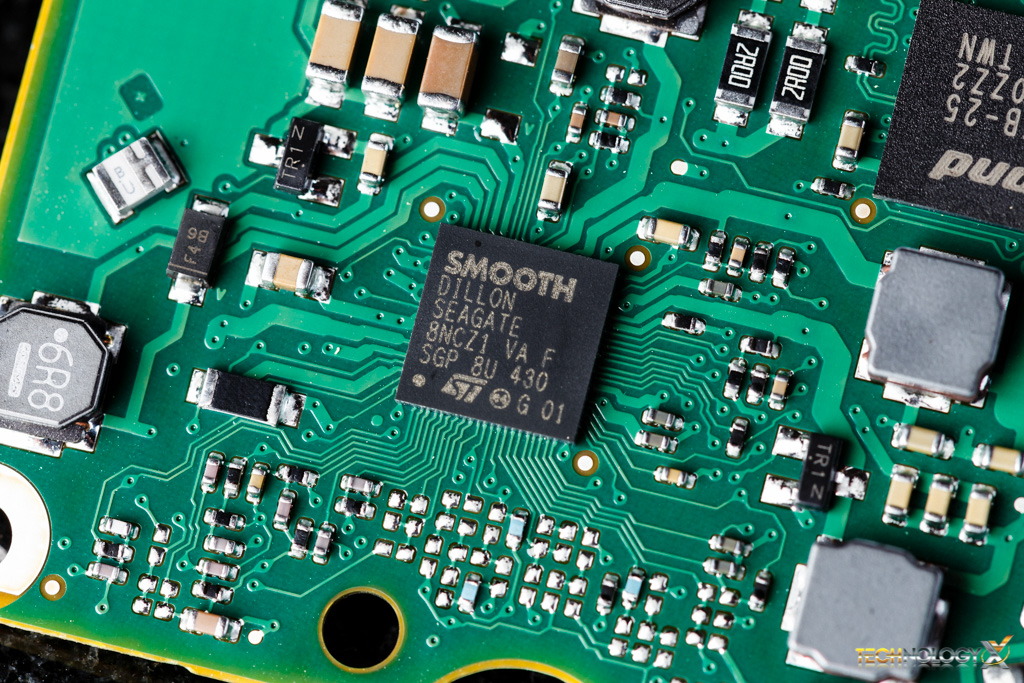
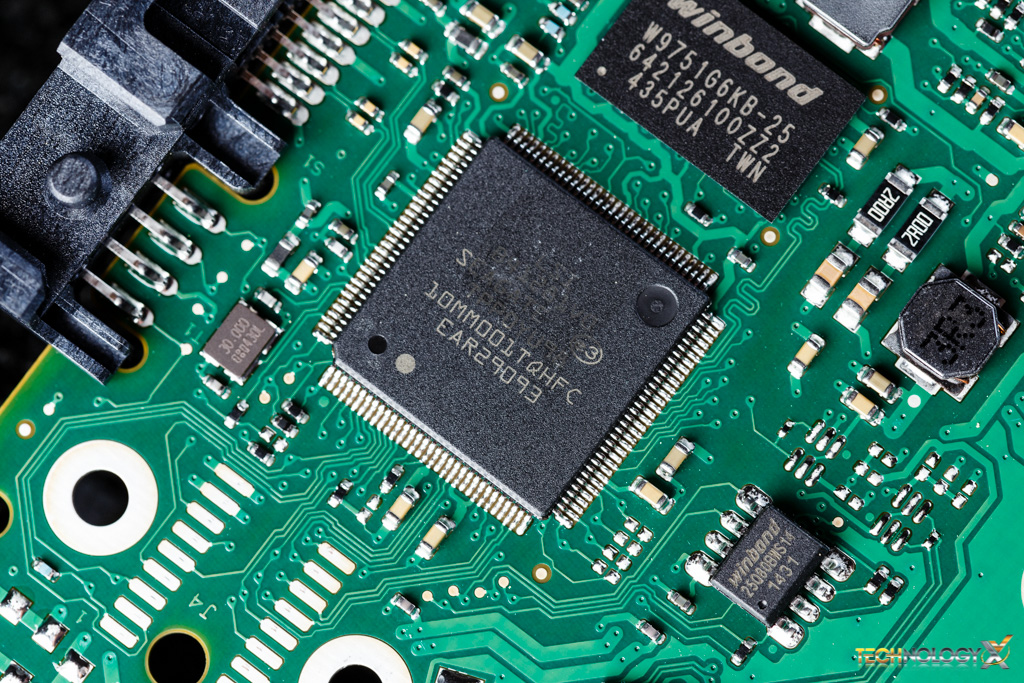

Don’t you mean $0.034c/GB??????
The 2TB version is actually faster……………..
This disk has massive reliability issues and should be avoided like the plague. Google it.
So stick with WD Green or Toshiba 3TB?
I don’t consider myself qualified to recommend a HDD. Just about qualified enough to warn you about the ST3000DM001, because I have experience with a two digit number of them. They are, to put it bluntly, garbage. In fact, most of the ST30000DM001s I have had the displeasure of handling are garbage in the most literal sense at this point, because they have failed. The first few disks that failed managed to take data with them. I quickly learned not to trust this model.
Voted up because I have two failed (40Gb and 250Gb) Seagate HDDs in my home being used as door stoppers. I had thought Seagate might’ve imporved their products :/
I must admit I have had some decent Seagate drives over the years, but the ST3000DM001 model has single-handedly convinced me to avoid Seagate from now on. The mess and anguish this model has caused is too serious to forgive.